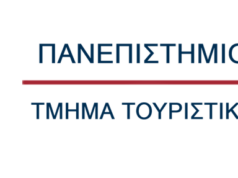 According to the ITB World Travel Trends Report technological advances are expected to produce some far-reaching changes in the hotel trade over the next ten years: ‘Smart rooms’ will adjust their ambience to meet the individual profiles of their guests – Social networks will create “hotel families”
According to the ITB World Travel Trends Report technological advances are expected to produce some far-reaching changes in the hotel trade over the next ten years: ‘Smart rooms’ will adjust their ambience to meet the individual profiles of their guests – Social networks will create “hotel families”
Berlin, 30 December 2010 – The hotel room is decorated to meet guests’ particular tastes, the bath water is just how they like it, the minibar is stocked with their preferred range of drinks, and their favourite music is playing in the background. This, or something similar, could soon become reality for hotel guests. This was the conclusion drawn by the ITB World Travel Trends Report, based on extracts from the European Travel Monitor and estimates by more than 50 tourism experts and researchers from around the world, including investigations carried out by the Fraunhofer Institute for Work Management and Organization (IAO).
The Fraunhofer Institute believes that technological advances with be among the most important forces driving the hotel industry, leading to some major changes over the next ten years. Guests will be checked in by robots, which will also provide a first class range of services for the duration of their stay. Automated ‘smart’ rooms will be fully equipped to meet the needs of guests. Guests will have their own profiles, which they can either enter via a PIN on a smart phone or which are transmitted by means of biometric authentification. This data can then be used to individually adapt the lighting, air conditioning and even the colour of the room. In the hotel rooms of the future the entire infrastructure will be designed to aid relaxation: gentle curves instead of sharp edges, smart ‘energy beds’, wall displays with giant screens, serving as an interactive interface to all the different communication channels and providing a workspace for business travellers. However, technological innovation is not the only topic under consideration in planning the hotels of the future, and ecological aspects will play an increasingly important role in meeting the needs of guests.
”Growing environmental awareness, global trends such as demographic changes, increased mobility and multi-cultural developments will all help to alter the profile of guests. In the future the different requirements of specific types of guests will determine what is on offer. This presents some serious challenges to the hotel industry, but also provides an opportunity to attract new types of guests”, reports Dr. Martin Buck, Director of the Competence Centre Travel and Logistics at Messe Berlin.
In the age of Web 2.0 innovative hotel operators are already engaging in a dialogue with their customers. The experts are fore-casting that future communities will form “hotel families”. Like-minded people will initially make contact interactively, compare interests and exchange recommendations, eventually meeting in a hotel that is specially tailored to enable them to undertake joint activities. This is one example of how social networks could lead people to form social communities. At the same time hotel operators could use the profiles of these “hotel families” and the feedback that they generate to adapt their products and services to meet the needs of their clients even more effectively, and to be able to offer them services that accurately meet these requirements.











